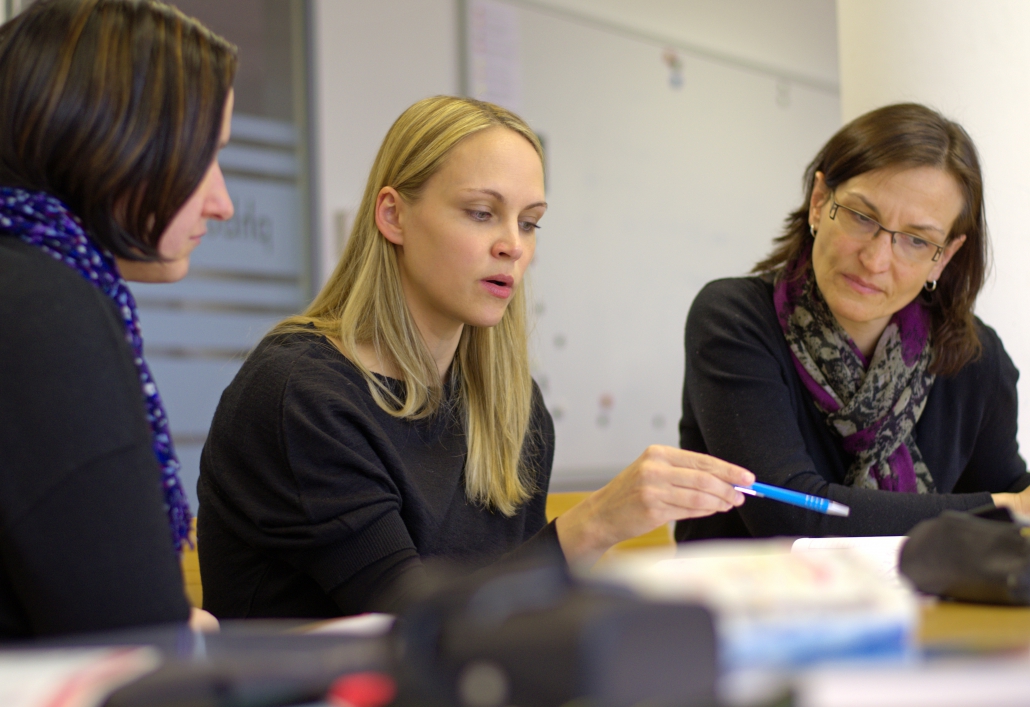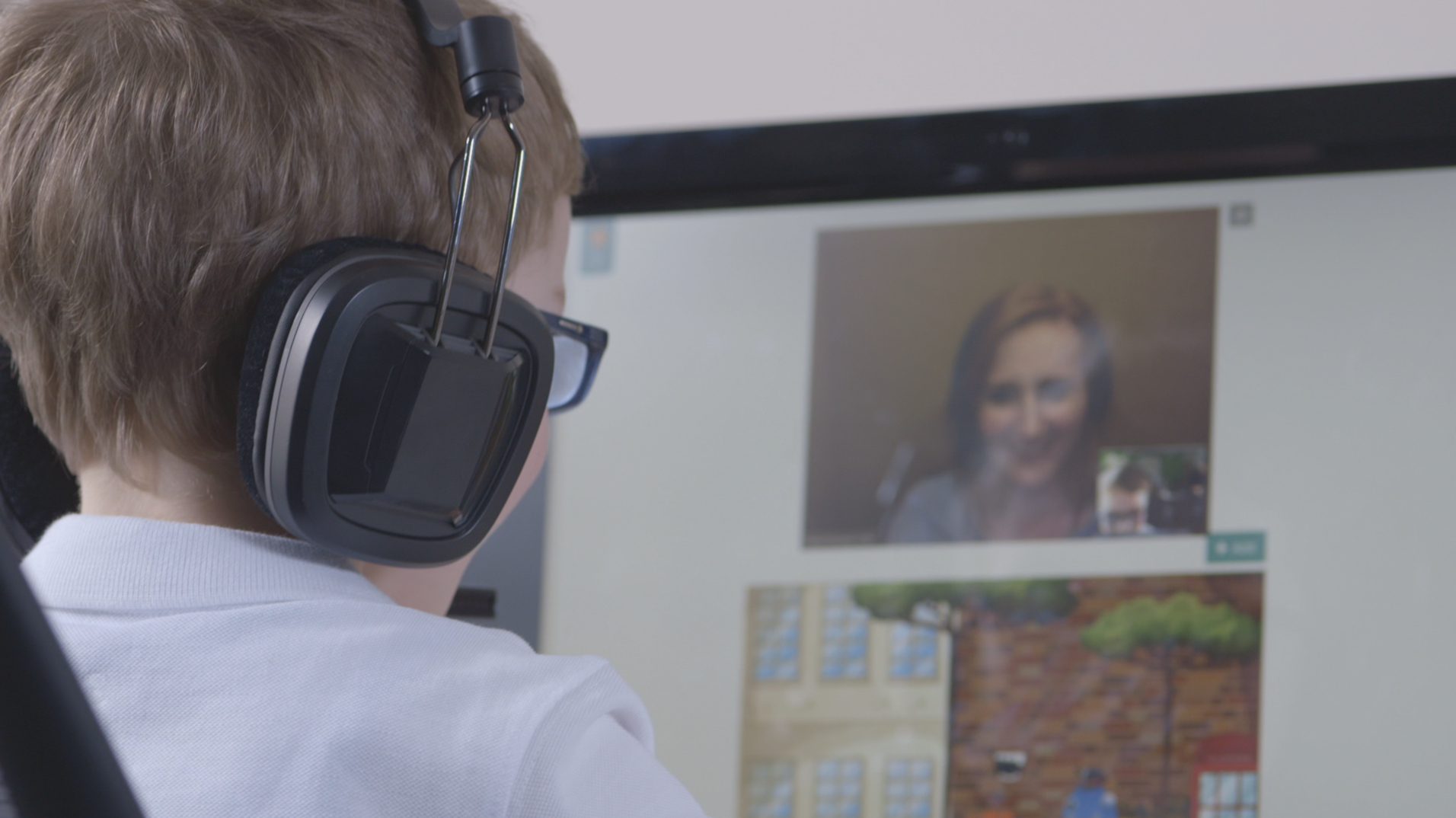Schools Guide to Online Speech & Language Services
by Martha Currie on Apr 27, 2020

Why do we need this guide?
Several weeks into our third lockdown and from what I have heard from parents you are doing an amazing job shifting from the classroom to an online environment. At Mable Therapy we are continuing to respond to national changes quickly and are continuing our online therapy sessions for all our registered pupils.
New service delivery models and the technological tools to support them – are inevitable. Online therapy is a viable solution to meet the increased demand for children with Speech and Language Therapy difficulties and their families. Even after the COVID-19 crisis, telepractice service delivery models will continue to expand and will be regular fixtures in educational settings and healthcare services. Based on the latest advice available, we have collated all the relevant information you will need to set up and maintain a remote speech and language therapy service in your school.
Lockdown updates
In the first lockdown, the Government passed the Coronavirus Bill which relaxed some of the legal duties around EHC plans. This time around this is not the case! The current guidelines specify that for children with EHCPs:
- The special educational provision provided by school must meet all of the needs specified in Section B of the EHC Plan.
- It is a legal requirement that schools and local authorities have to deliver that provision.
Online therapy, also known as Telepractice is the remote delivery of services using technology. Telepractice has the capacity to overcome issues relating to access to services such as distance, immobility and increased demand for speech and language need. Mable Therapy are the UK leaders in Telepractice and have a long-established reputation for excellence in the field. Read our white paper to find out why this type of therapy model is so effective. You can download the document below. Online Therapy Whitepaper
Risk assessment for pupils with SLCN
The DfE has issued guidance advising local authorities to conduct risk assessments and makes suggestions and recommendations for how that might be done in collaboration with educational settings and parents. When carrying out risk assessments for pupils with Speech, Language and Communication Needs there are additional considerations. The following checklist poses questions that need to be considered when prioritising provision for children with speech, language and communication difficulties.
Speech and language prioritisation profile
The purpose of this document is to guide a discussion about which pupils to prioritise for direct therapy online. You can download the document below.

Video conferencing considerations
In a time of crisis, decisions are often made quickly in order to get the job done. But in the long run, circumstances can change and the risk balance case might look different. Make sure the online video conferencing technology you use is transparent. You need to know how your data will be processed, and the security of your live stream. You can find this information about Mable in our privacy policy. Other video conferencing companies will have similar policies in place.
Matching your school policies
Your organisation will have adapted their approach to ensure that data is adequately protected. Avoid the temptation to do things in a way you think is more convenient, such as sending emails through your personal account or using the video conferencing app that you use with friends for work calls.
Software updates
It is important to keep all your software up-to-date, and video conferencing software is no exception. Mable will automatically prompt you and families to update your software, but another software offering may not do the same thing. If you access a video conferencing service via a web browser, then make sure the browser is kept up to date too.
The online therapy Environment

Privacy and security settings
It is important that you have the correct environment available within your school to receive online therapy. If therapy is taking place at home then parents need to be made aware of what creates the most suitable environment to receive therapy. Download our guide for accessing therapy at home with Mable.
Quiet
- Space should be quiet, with low background noise.
- Noisy rooms can be distracting for pupils especially those who have difficulty with language and communication. So think about the best possible environment for the pupil you are working with.
- If it is too noisy the therapist may also have trouble hearing you and the pupil which can affect the effectiveness of the intervention.
- The therapist will help you to find a suitable environment within your school and they will test it out with you before you bring children for therapy to make sure everything is just right.
Private
- Space should be private. Client confidentiality is critical and should be respected.
- The sessions are private and confidential for each pupil. Remember Speech and Language Therapy is a health service and each pupil is a patient of the therapy service.
- Before starting work with a patient Mable Therapy gains written consent from the pupil’s parent or carer in line with HCPC guidelines (Health Care Professionals Council) and GDPR guidelines (General Data Protection Regulation).
- Observations by other professionals can be arranged but must be agreed in advance of the session. This may include (NHS therapists, Ofsted, media outlets)
Comfortable
- Make sure you are comfortable for the session.
Make sure the pupil is comfortable too. Avoid spinning chairs, exercise balls or a chair with no back as these can be distracting. - Try and make sure the pupil’s face can be seen on the camera. You may have to play around a little bit with the seat height and position of the computer to get things just right.
Other equipment required
A Notepad
In each session, the therapist will be talking to you about what they are doing and why. They will give you advice about how to incorporate therapy goals into core subjects. They will also be asking you questions about how the pupil performed in follow-up activities. This can be a lot to remember so it is a good idea to bring a notepad with you so you can write things down.
Fidget toys/chewy toys
If pupils use fidget toys and chewy toys in class it is absolutely fine for them to bring them to the session too. We want the pupils to feel calm and relaxed in their therapy time. Although please don’t bring them with snacks! Speech sounds and toast can get a bit messy!
Sense of humour
This is a therapy session but it is also fun! Expect some laughs with your therapists and the pupil you are working with. We love to hear about what you have been getting up to in the week as this supports natural communication! We are all about creating memorable and functional therapeutic experiences.

Staffing
If the sessions are taking place in school it is important for a member of the school staff to be with the pupil during the assessment and intervention sessions.
The staff member takes an active role in the sessions working with the therapist to support the pupil. As the intervention is separate from classroom activities, the staff member will be provided with high-quality training from a specialist therapist on how to develop the communication and interaction skills of pupils across different contexts.
We recommend at least once per term the pupil’s class teacher and/or SENCo attends a session too. It is key to ensuring that learning in interventions is consistent with and extends work inside the classroom and that a pupil understands the links between them.
At home, we would expect a parent to be supervising the child in the same way and these expectations should be made clear before starting the therapy process.
Investment and outcomes
Remember, the purpose of interventions is to support pupils to achieve in core subjects as well as improve social, emotional relationships with peers. But, without evaluation, it is impossible to know whether an intervention is having a positive impact on learning. It can be tempting to implement plausible-sounding strategies which, in reality, don’t benefit students at all. Like every other type of intervention, Speech and Language therapy needs to be accountable.
At Mable, pupil progress data is collected in each online session. You are able to track the frequency and effectiveness of the intervention for individual students. Mable therapists set individual personalised targets for pupils based on clinical assessment data.
Targets are accurately tracked from session to session. All progress information is shared with all staff working with that pupil and their parents automatically. You can learn more about measuring the impact of your speech and language therapy provision here
Getting started checklists for school staff
- General mental health (36)
- General Speech & Language (31)
- Primary Schools (25)
- School Issues (25)
- Classroom Behaviour (24)
- Counselling (24)
- Anxiety (22)
- Absenteeism (21)
- Speech and Language Therapy (21)
- SENCOs (19)
- Safeguarding (18)
- Secondary & Sixth Form Schools (17)
- Social Communication (17)
- Funding (15)
- MATs (15)
- Generalised anxiety (14)
- Autism Support (11)
- Language Delay/Disorder (11)
- SEMH (11)
- Relationship Issues (10)
- AAC (7)
- ADHD Support (7)
- Speech Sounds (7)
- Autism (5)
- Hearing Impairment (5)
- Depression (4)
- Selective Mutism (4)
- Anger (3)
- Cleft Lip/Palate (3)
- Downs Syndrome (2)
- Phobias (2)
- Stammering (2)
- Loss (1)
- Self-Harm (1)
- Suicidal Thoughts (1)
You may also like
These related stories

How do you measure the impact of speech and language therapy?

Does Speech Therapy Online Actually Work?
